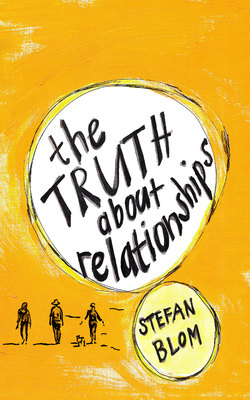Читать книгу The Truth about Relationships - Stefan Blom - Страница 21
На сайте Литреса книга снята с продажи.
Relationship skill
ОглавлениеShare your upsets
When we don’t feel seen and acknowledged by the people we love, we get upset or feel hurt. Being upset and, at times, hurting each other is part of being in a relationship. Having good intentions, and loving and caring for each other deeply, do not mean that you will never hurt each other. Being upset is an important – and inevitable – part of being in a relationship.
Being upset means life is giving you direction.
When times are difficult and upsetting, I find that life is guiding you and your relationship. Your relationship is speaking to you if you are upset or hurt. It is telling you that you have to make time to share your inner thoughts and feelings. Being upset is your invitation to share your moment of truth. Every upset that you sweep under the carpet and ignore is a missed opportunity for connection.
The golden rule is that if you have a thought or feeling that bothers or upsets you, and you sleep on it and wake up the next day still feeling the same, it is relevant to your relationship. You need to discuss it. Every upset not discussed is a missed opportunity for connection. Be honest about what you think and feel, and share it gently.
The sooner you share your upsets, the better for your relationship.
The moment you feel upset, you need to remind yourself that a conversation might follow. The longer you keep your upsets to yourself, the more damaging it is for your relationship. This is called your ‘turnaround time’, and it is a skill. The time between feeling upset and sharing your upset will determine the experience of your relationship. Most couples I meet stay upset for days, months and even years. But the truth is that every day spent with upsetting thoughts and feelings is a wasted one.
Even if your partner caused you to be upset, you are responsible for sharing your feelings with him or her. Your upsets are always your responsibility. You have a responsibility to the life of your relationship by sharing your upsets. Not speaking your truth inevitably creates a crisis, which will force its way to the surface like a ball that pops back up when you push it under the water. So, the next time you are upset, remind yourself to share it honestly and gently – as soon as possible.
Questions to ask yourself
The following questions might guide you in the process of sharing your upsets:
•What really upsets me in my relationship?
•What is important to me in my relationship at this point in my life?
•What needs to be shared or spoken about that I am keeping to myself? What is really going on inside me that I am not saying?
•What do I need or expect from my partner that I am not sharing?
•When I feel upset, how, when and where can I share my thoughts and feelings?
If you struggle to answer these questions, no longer know what is true for you, or feel so lost that you no longer have a sense of who you are, you should start the process of checking in with yourself. Looking closely at yourself is about seeing yourself and your relationship. When you are lost, it is good to write down your inner thoughts and feelings – writing is a good way of seeing. In time, you will experience what is really on your mind. Once you connect with what is true for you, you will never forget it. Once you have seen yourself and your relationship, you cannot pretend that you haven’t. You cannot change what you cannot see. So, knowing yourself and your relationship is essential for changing your relationship.
